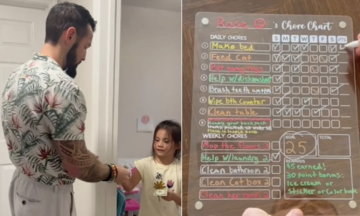Jo-anne Peng, 46, a business development director in Singapore earning 18,000 SGD a month, has never successfully dated someone who earns more than her.
At the start of each new relationship, Peng always thought, "As long as I'm financially secure and the man doesn't expect me to support him, everything will be fine". She never asked her partners how much they earned, but guessed it was typically 30-50% less than her.
This mindset gave her independence, but also made it difficult to "be a complete woman in love". "Gradually, I forgot how to bring my femininity into the relationship. Practical worries took over, I neglected emotional needs, and then love just faded away," she said.
According to psychologist Aloysius Tay, Jo-anne's experience is a common one. "Jo-anne speaks for many people in similar situations. When one person carries most of the financial burden, they can become emotionally exhausted because they still have to meet the expectations of caring for the family and meeting their partner's emotional needs."
He added that men can also feel this pressure, but women often bear the double expectation of being both the financial provider and the nurturing, caring partner. "They are trapped in a state of 'having to do it all,' finding it difficult to relax, feel supported, or connect with their own emotions."
For Jessica Lim, 41, a communications manager, financial success and financial values are two different concepts. She has been married for 23 years. "The important thing is that we have the same views on money, such as how to spend and save," she said.
Despite earning more, Lim feels that she and her husband balance each other out by mitigating each other's risks. "My industry frequently downsizes, and I've been laid off twice. But my husband's job is stable with regular bonuses, so even though I earn more, I can still rely on him during tough times."
Sharing a similar view, Amy Ang, 35, who works in finance and earns about 13,000 SGD a month, also believes that men can compensate for income disparity in other ways, such as by providing emotional security.
"I'm open to dating someone who earns less, as long as I don't have to change my lifestyle. I'm looking for someone who has a financial plan and lives within their means," the currently single woman said.
According to Tay, the success of a relationship lies not in income figures, but in respect, emotional intelligence, and shared values. "The important thing is that both are willing to share responsibilities and appreciate what the other brings."
But Jo-anne thinks differently. Having recently ended a relationship, she has decided that in her next one, she wants a partner who is financially equal or better. "Money is the result of efforts to build a career and a legacy. I want someone who understands the anxieties of financial security, can share worries about the future, and can support me when I'm tired," she shared.
For her, money isn't just a symbol of security, power, or ego, but also a measure of mindset, showing whether a person can be an effective partner in love. "I don't need to spend a man's money, but I want a man who has money," she said.
In Singapore, the idea of "marrying up" is still prevalent. According to experts, many successful women are labeled as picky, but in reality, they are protecting themselves. Some worry that being with someone less successful will erode the relationship due to their own insecurities.
Bao Nhien (*CNA*)












